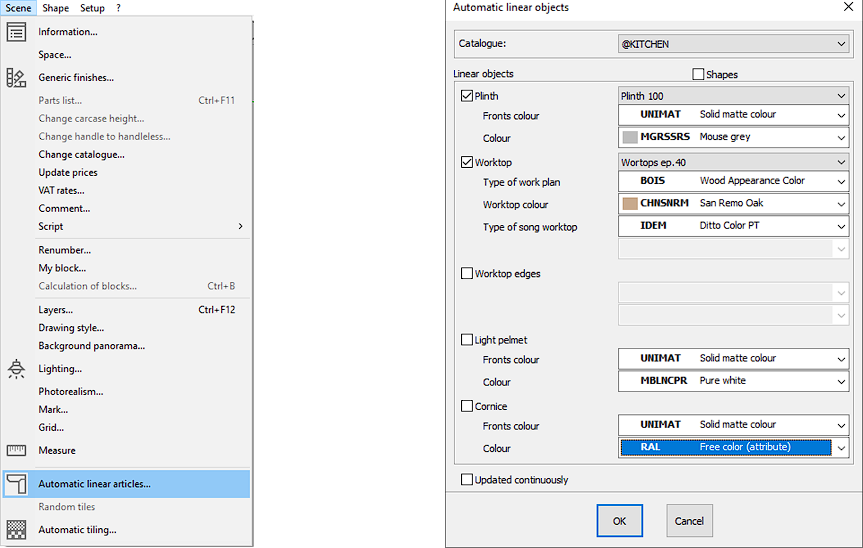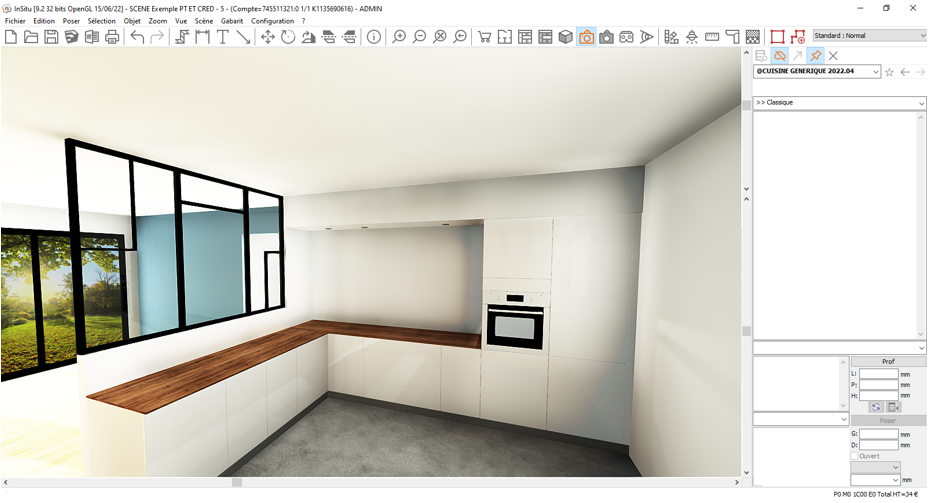Placing automatic linear articles: Difference between revisions
No edit summary |
No edit summary |
||
| Line 4: | Line 4: | ||
<td width="80%"> | <td width="80%"> | ||
<!-- contenu --> | <!-- contenu --> | ||
<h1 class="title_page">Understanding the Place window</h1> | |||
<div align="center"> | <div align="center"> | ||
<p class="cadrevideo"> | <p class="cadrevideo"> | ||
| Line 9: | Line 10: | ||
https://www.youtube.com/watch?v=fJL6nKZyhDU&list=PL7MrU2icgiqFa5_zPfdNVclL0x8F69hgP&index=6 | https://www.youtube.com/watch?v=fJL6nKZyhDU&list=PL7MrU2icgiqFa5_zPfdNVclL0x8F69hgP&index=6 | ||
</youtube> | </youtube> | ||
<br> | <br> | ||
</p></div> | </p></div> | ||
Revision as of 16:20, 5 August 2024
Understanding the Place window
The linear elements of a kitchen are the bases, the worktops, the worktop spaces to be tiled, the light pelmets and the cornices. Except in very particular cases, the placement of linears takes place automatically. To do this: 1. It will allow you to choose the catalogue of origin, the type and the colouring of the linear elements that you want to place.
2. For each of the five different types of linears, choose the colours that you like best. Tick or untick depending on what you want to place in the scene. 3. Click on the "OK" button or press on ENTER.
The linear elements corresponding to the ticked boxes in the dialog box will then be placed.
|
|


